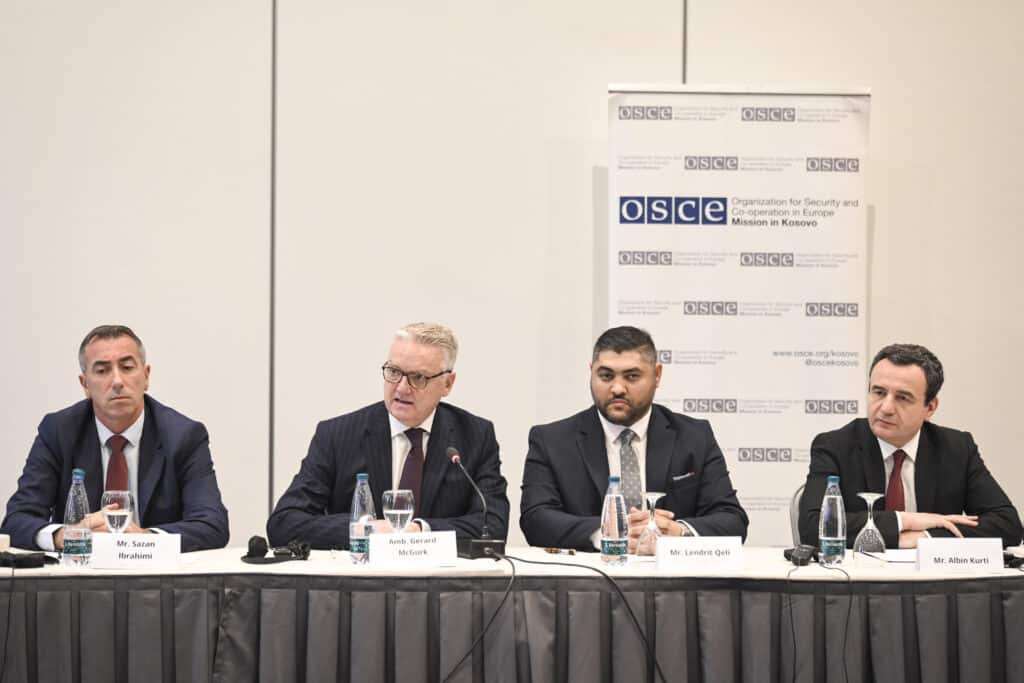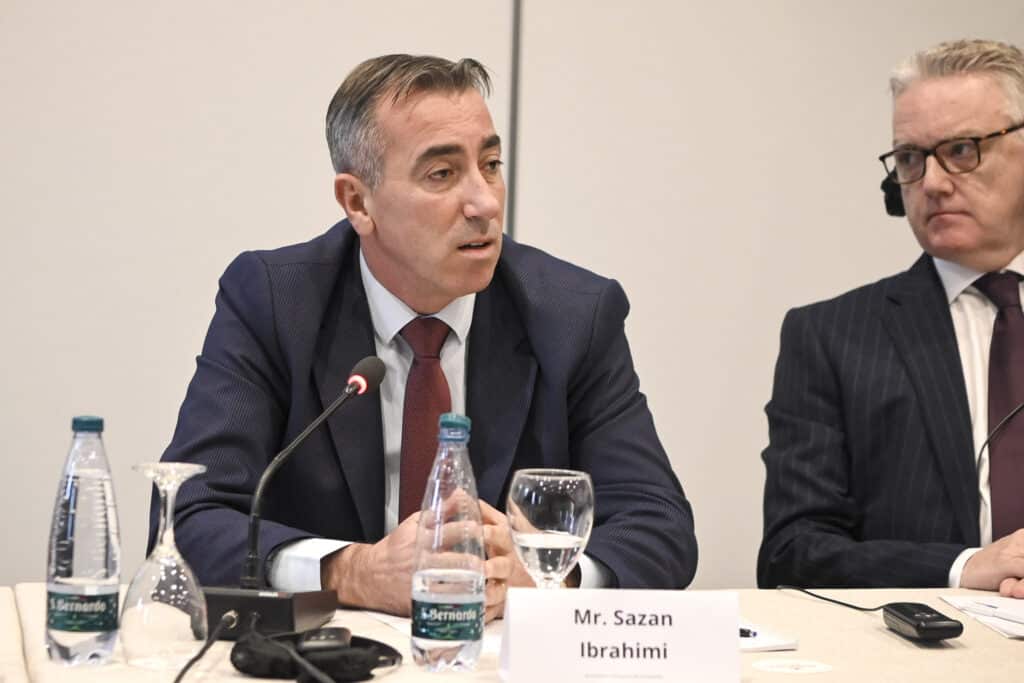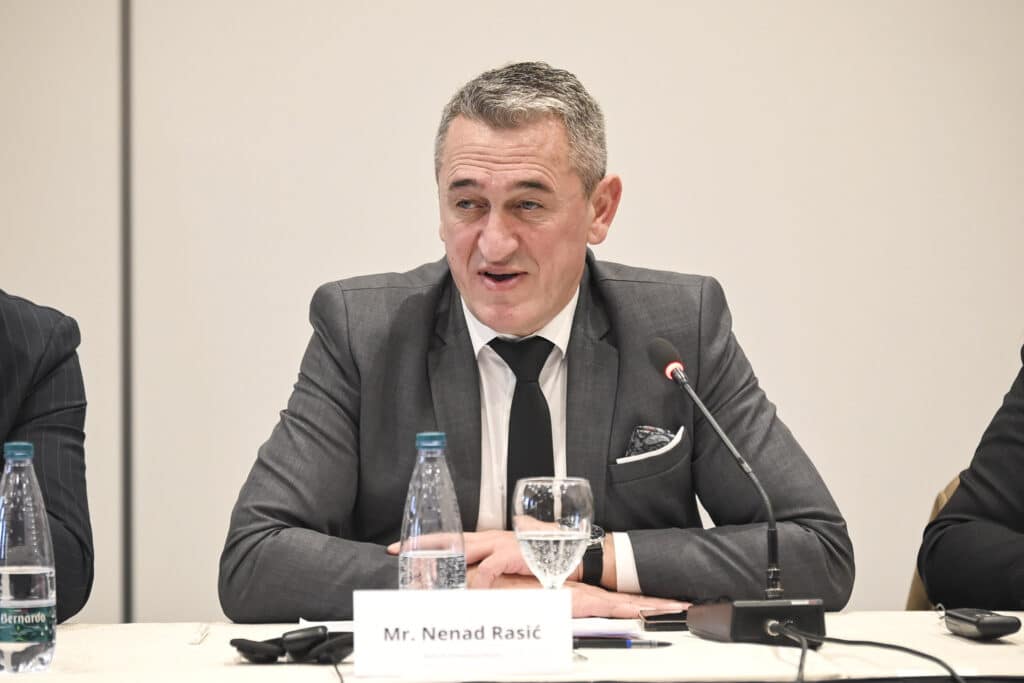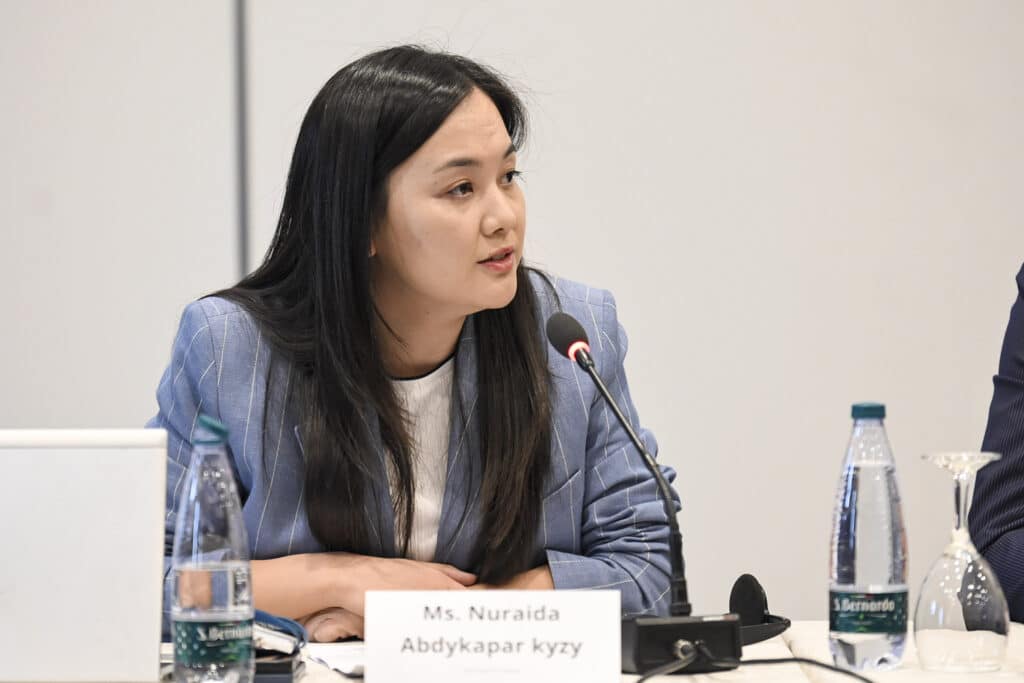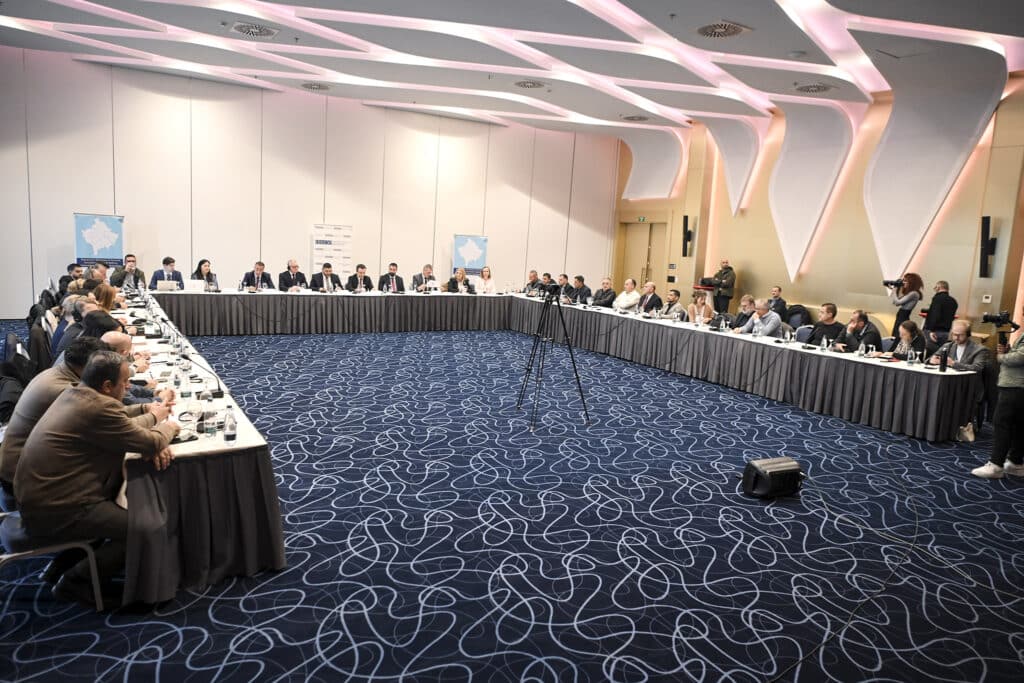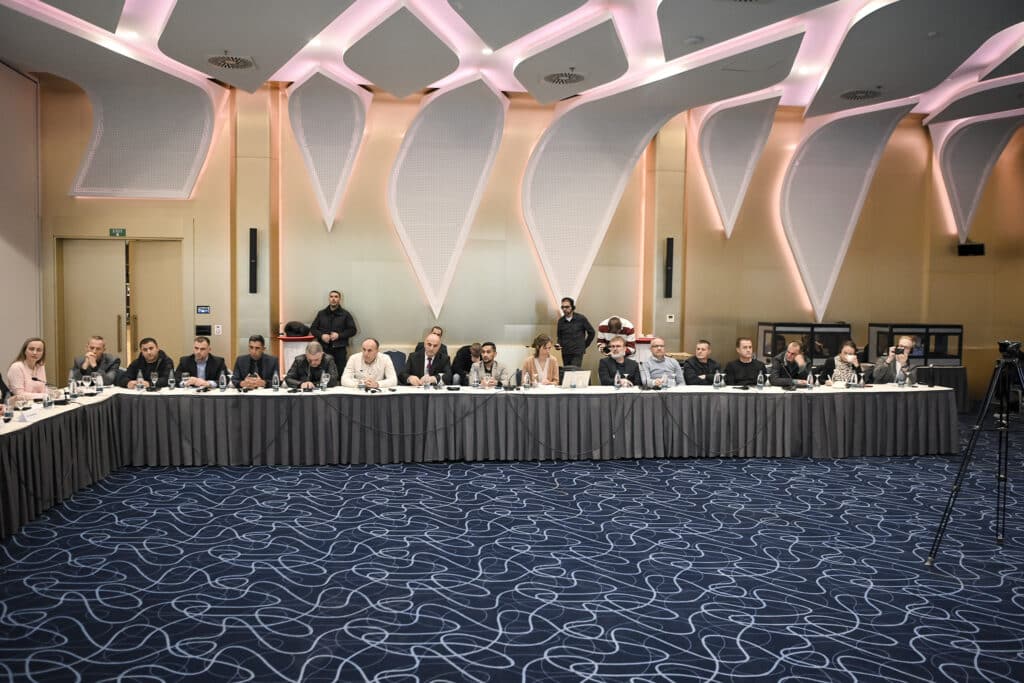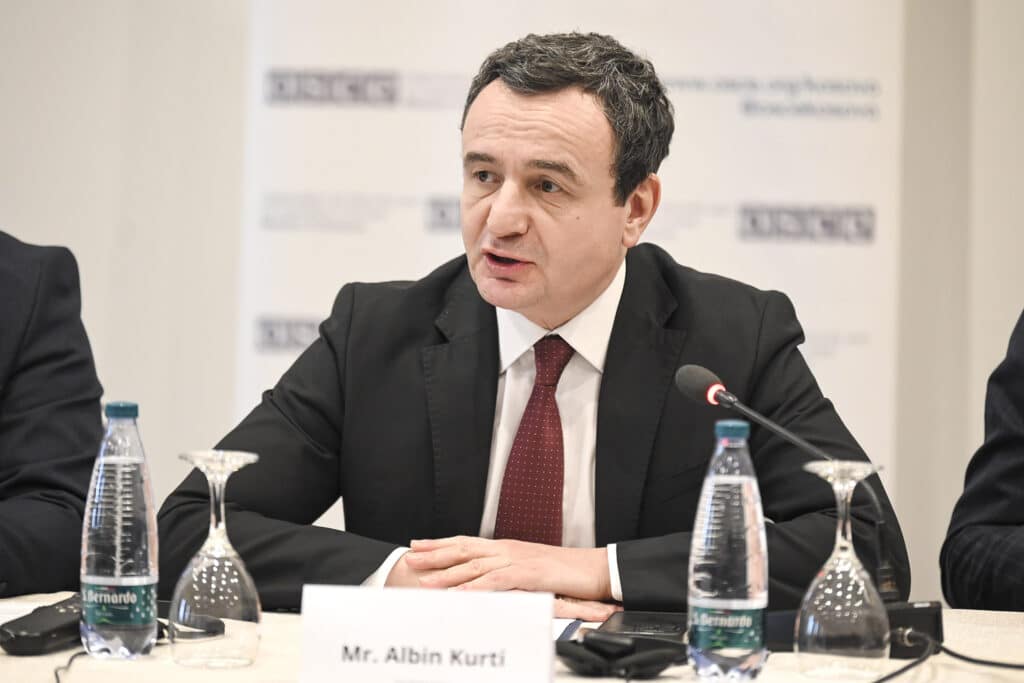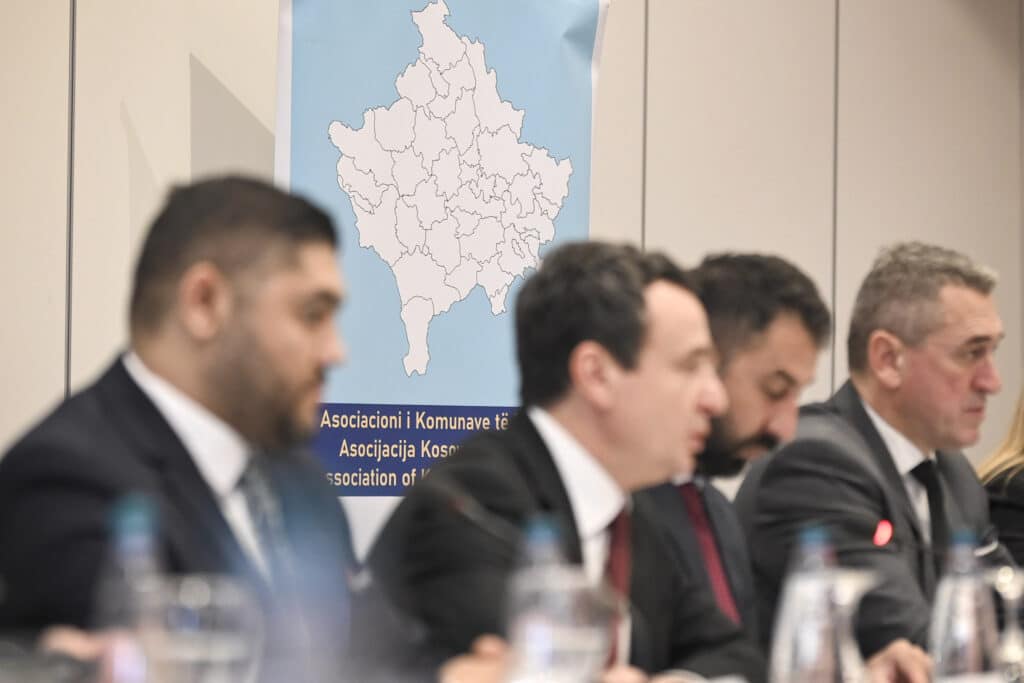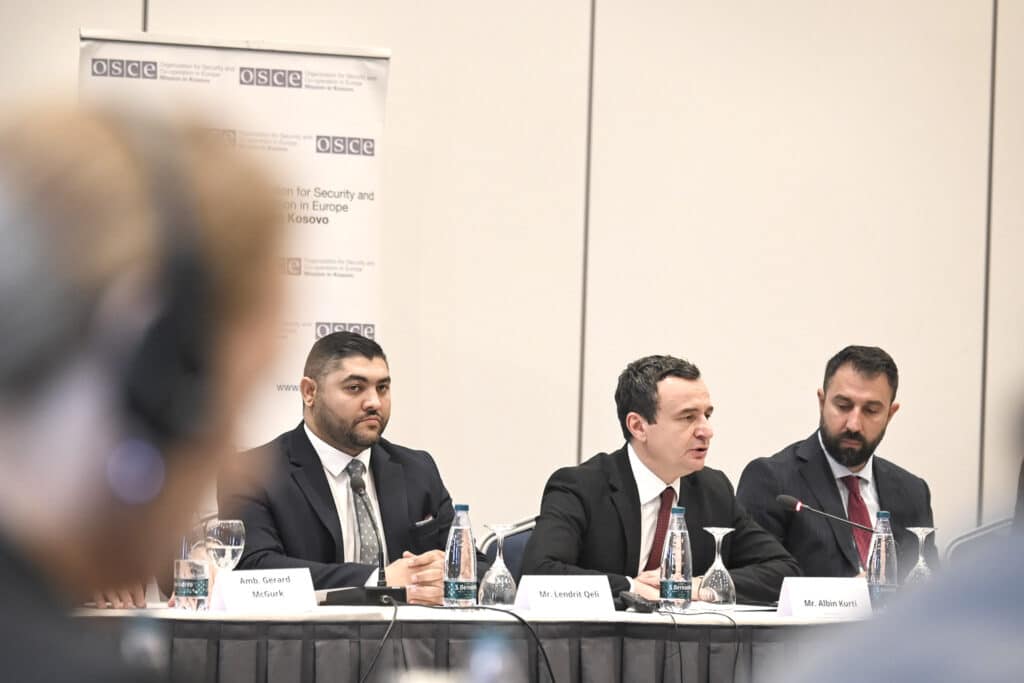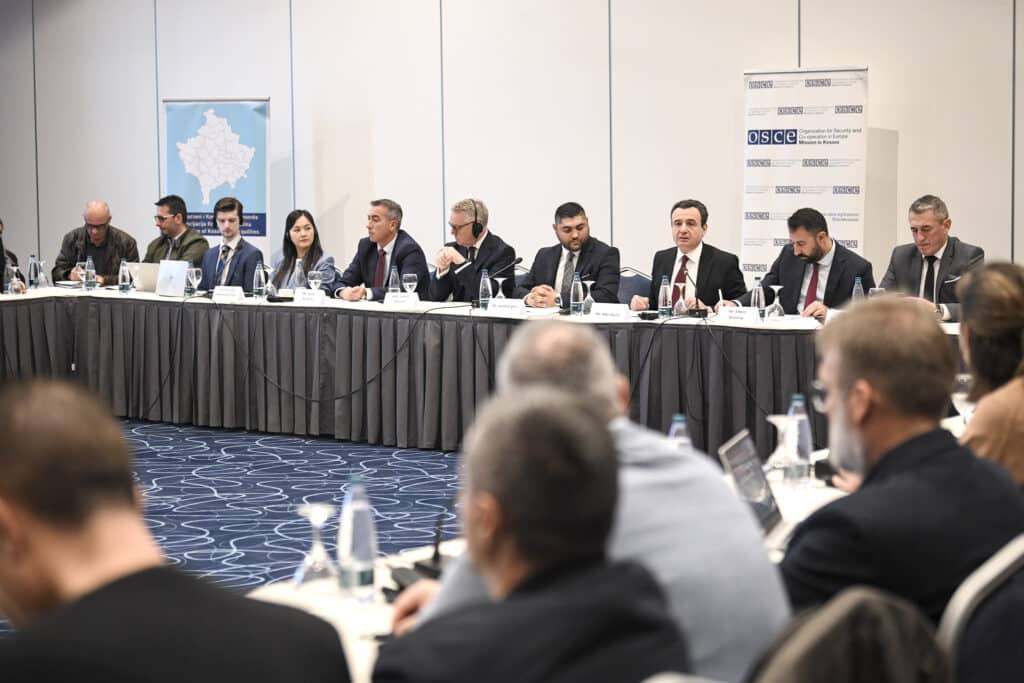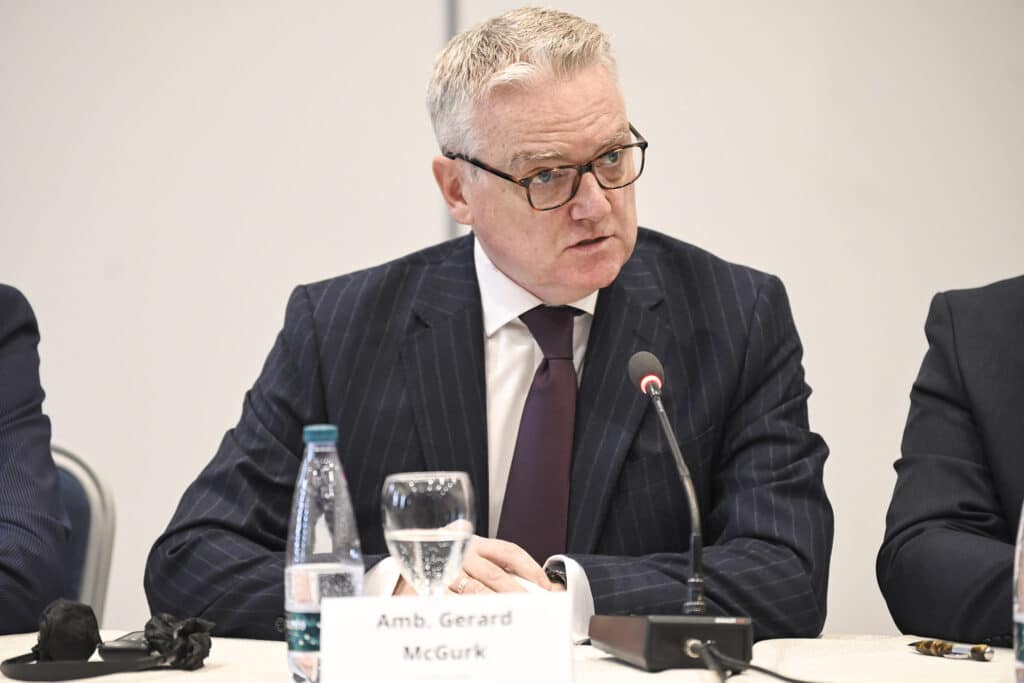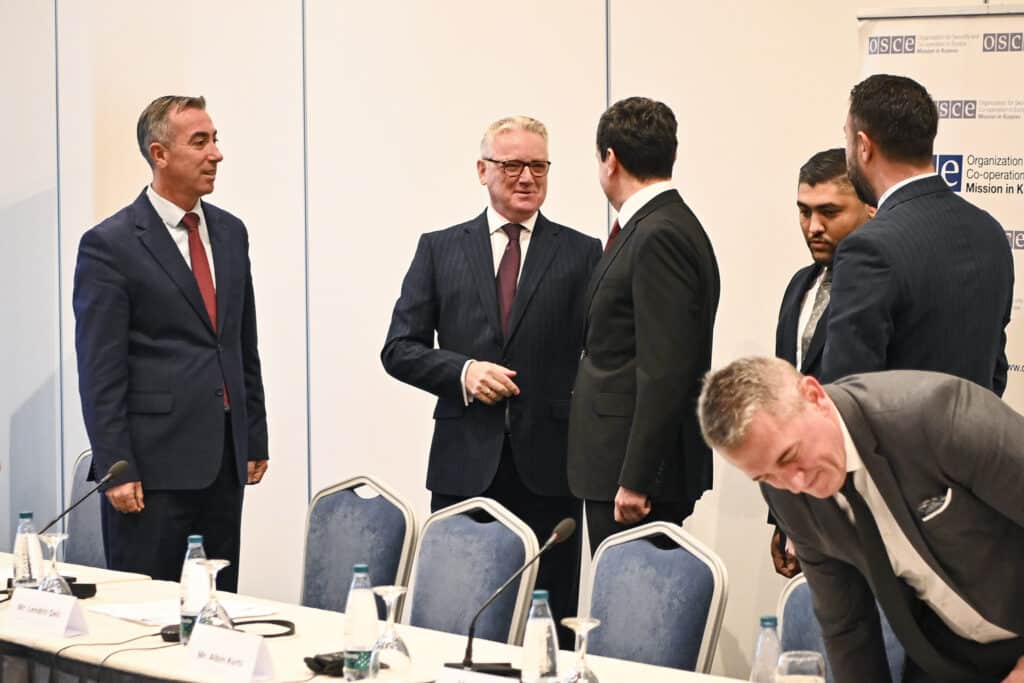Pristina, 17 November 2025
The Acting Prime Minister of the Republic of Kosovo, Albin Kurti, participated in the roundtable titled “Challenges and Improving the Functioning of Municipal Offices for Communities and Return.”
In his remarks before numerous local and international institutional representatives, Prime Minister Kurti stated that throughout more than four years of governing, developing policies that facilitate the lives and access of non-majority communities—that make the support of the state more tangible—has been high among our government’s priorities.
He added that over the past four years, nine meetings have been held with municipal officers for Communities and Return; therefore, this roundtable also serves as a concluding moment to look back in time, to review what we have achieved as a government during this mandate, and to reflect on the many meetings and discussions with members of non-majority communities.
“The Ministry for Communities and Return, led by Nenad Rashiq, has contributed to the allocation of grants for farmers, young entrepreneurs, and non-governmental organizations for community projects. It has financed over 400 projects for beneficiaries from the communities in the fields of education, culture, sports, and health, with a total value of €1.4 million. To positively influence the lives of the communities, more than 170 houses have been built and renovated to ensure sustainable return and integration for non-majority communities, and 34 apartments have been built for beneficiary families who lived in collective centers—the Residents of Collective Centers in Kosovo,” said the Prime Minister.
On this occasion, the Prime Minister noted that, in cooperation with municipalities, the Ministry for Communities and Return has implemented 14 infrastructure projects for non-majority communities, increased subsidies for efficient equipment, and encouraged employment through the Kosovo Generation Unlimited program and employment measures, including those for up to 2,000 residents of the municipalities of Zubin Potok, Leposaviq, Zveçan, and North Mitrovica.
He added that within the project “Municipalities for Youth,” 3,000 young people from non-majority communities and NGOs have been supported in acquiring project-management skills. A total of 819 new businesses have been registered in the northern municipalities of the country, and offices offering public services to residents of these municipalities have been opened. Young people from the communities have benefited from student scholarships, while in infrastructure, €3.9 million has been allocated for roads in areas inhabited by non-majority communities in the municipalities of Dragash, Graçanica, Istog, Kllokot, Mamushë, North Mitrovica, Novo Brdo, Partesh, Prizren, Ranilug, and Shtërpcë.
“I welcome the discussions that will take place at this roundtable, with the optimism that from this meeting we will emerge with more ideas on how to develop new initiatives, strengthen cooperation, and increase implementation in order to contribute to the common good. Because communities are part of us, part of society, and we must do our utmost not only to ensure that everyone feels integrated in social spheres, but also that they are in suitable conditions to provide their contribution, to benefit for themselves and their families, and to leave a mark on the development of our shared state,” said the Prime Minister.
He concluded his speech by expressing that the government will always support them in all circumstances, just as they have done so over these more than four years of the governing mandate.
This roundtable was organized by the Association of Kosovo Municipalities with the support of the Organization for Security and Co-operation in Europe (OSCE), Mission in Kosovo.
Full Speech of Prime Minister Kurti:
Honourable Nenad Rashiq, Deputy Speaker of the Assembly of the Republic of Kosovo,
Honourable Elbert Krasniqi, Minister of Local Government Administration,
Honourable Sazan Ibrahimi, Executive Director of the Association of Kosovo Municipalities,
Honourable Lendrit Qeli, Head of Office and Chair of the Collegium of Municipal Offices for Communities and Return within the Association of Kosovo Municipalities,
Honourable Head of the OSCE Mission, Ambassador Gerard McGurk,
Distinguished municipal officials of the communities,
Representatives of central and local institutions from the communities,
Distinguished international partners from IOM and representatives of the diplomatic corps in Kosovo,
Distinguished participants,
Ladies and gentlemen,
The development of policies that ease the lives and improve the access of non-majority communities, and that make the support of the state more tangible—has been high among our government’s priorities. Over these more than four years, we have worked to ensure that no citizen is forgotten or left without the care of the state. Therefore, coordination with municipalities at the local level, particularly with the offices for Communities and Return, has been important and necessary to ensure an inclusive approach.
Together, we have held a total of nine meetings over the past four years. Today we are gathered to discuss the topic “Challenges and Improving the Functioning of Municipal Offices for Communities and Return.” For me, this is also a moment to look back in time—to review what we have achieved as a government during this mandate and to reflect on the many meetings and conversations with members of non-majority communities.
The Ministry for Communities and Return, led by Nenad Rashiq, has contributed to the allocation of grants for farmers, young entrepreneurs, and NGOs for community projects. It has financed over 400 projects for beneficiaries from the communities in the fields of education, culture, sports, and health, with a total value of €1.4 million. To positively influence the lives of the communities, more than 170 houses have been built and renovated to ensure sustainable return and integration for non-majority communities, and 34 apartments have been built for beneficiary families who lived in collective centers—the Residents of Collective Centers in Kosovo.
In cooperation with municipalities, the Ministry for Communities and Return has implemented 14 infrastructure projects for non-majority communities, increased subsidies for efficient equipment, and encouraged employment through the Kosovo Generation Unlimited program and employment measures, including those for up to 2,000 residents of the municipalities of Zubin Potok, Leposaviq, Zveçan, and North Mitrovica.
Within the “Municipalities for Youth” project, we have supported 3,000 young people from non-majority communities and NGOs in acquiring project-management skills. A total of 819 new businesses have been registered in the northern municipalities of our country, and public-service offices have been opened for the residents of these municipalities. Young people from the communities have also benefited from student scholarships, while in infrastructure we allocated €3.9 million for roads in areas inhabited by non-majority communities in the municipalities of Dragash, Graçanica, Istog, Kllokot, Mamushë, North Mitrovica, Novo Brdo, Partesh, Prizren, Ranilug, and Shtërpcë.
The work carried out is important and valuable—for non-majority communities, for boosting employment, for efficient public services, for dignified living conditions, and for more security and prosperity for all. Even more important for us is continuing this pace and creating new opportunities that advance progress for non-majority communities everywhere.
I welcome the discussions that will take place at this roundtable, with the optimism that from this meeting we will emerge with more ideas on how to develop new initiatives, strengthen cooperation, and increase implementation in order to contribute to the common good. Because communities are part of us, part of society, and we must do our utmost not only to ensure that everyone feels integrated in social spheres, but also that they are in suitable conditions to contribute, to benefit for themselves and their families, and to leave their mark on the development of our shared state.
In this regard, it is unacceptable for one municipality to have a highly efficient office while another does not. There must be greater coordination and cooperation among the municipalities themselves—beyond their cooperation with the central level—so that knowledge is shared, experiences exchanged, and ideas, formats, and methods that work and deliver tangible results can be tested. You will always have the government’s support everywhere, just as you have had during these more than four years of our mandate.
Thank you for your participation and attention, and I wish you successful and fruitful discussions and work.
